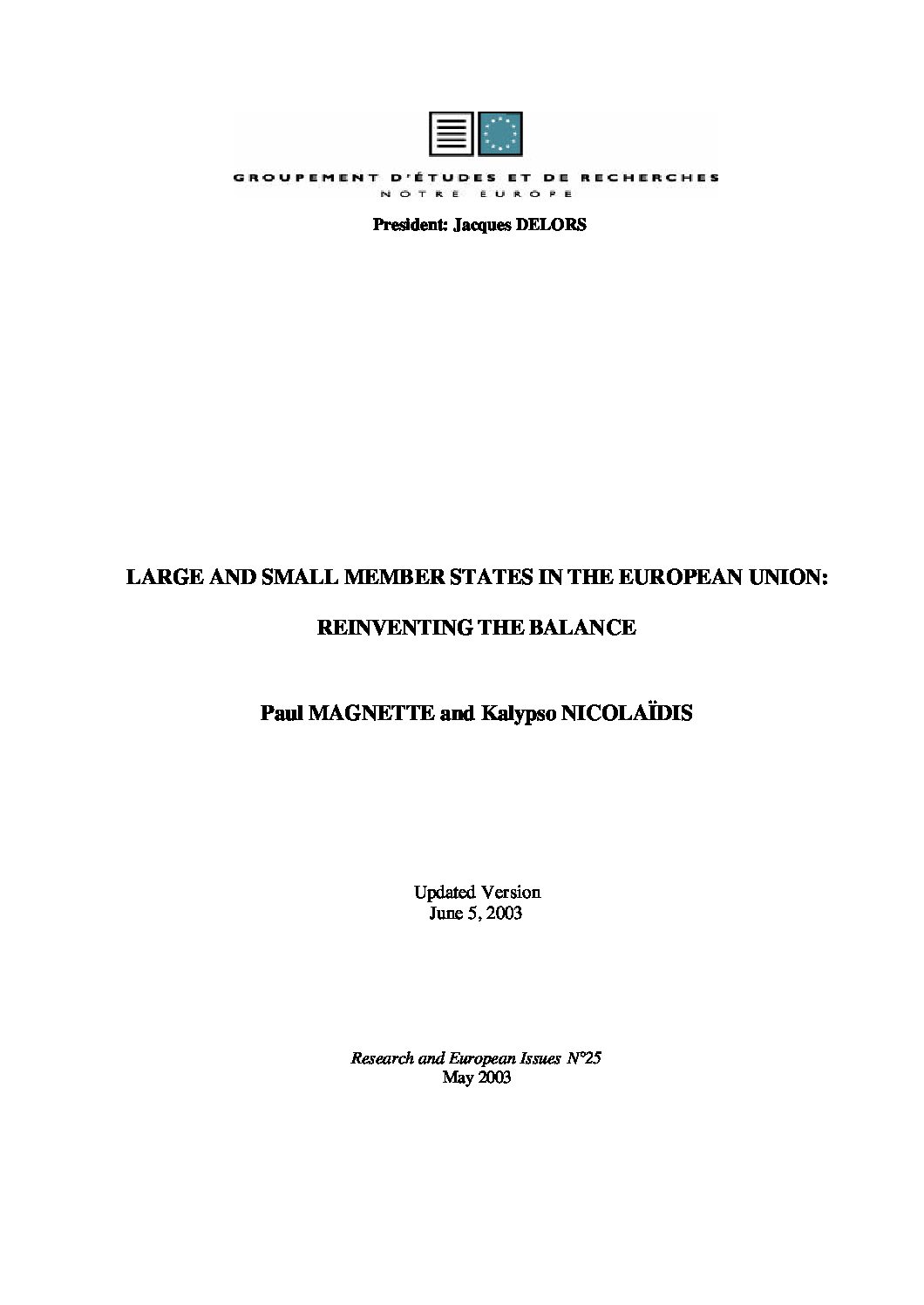Other document
Large and Small Members States in the European Union
Of all the divisions which cause disagreement between the member states of the enlarged European Union and make the work of those at the Convention even more difficult, the division which pits “small” against “big” member states was not the most anticipated. However, this division is turning into the “question of the Prince” which, as the authors so aptly point out, is traditionally the most controversial of any constitutional debate.
While Notre Europe felt some time ago that this subject deserved to be dealt with in a positive manner, we have left Paul Magnette and Kalypso Nicolaidis very little time in which to do this. Although I have for many years been aware of their respective talents, I could not help but be surprised by the clarity, vigour and pertinence of a study which they wrote in such a short time. The original balance rests on three pillars: the weighting of votes in the Council, the federal role of the Commission and the equal rotation of the Presidency. Although this has been maintained up to now, this has been at the expense of growing tensions and a notable increase in the complexity of the mechanisms (Nice outlined 9 categories of State for the weighting of the votes). The historical background allows us to understand why the Presidium provoked such a heated debate with its direct attack on the rotating presidency following the “hegemonic” Franco-German compromise. And in this kind of matter, it is important to begin by understanding both sides. I agree with the authors when they point out that the question of the balance between Member States of different weights applies in each European institution in its own specific way. It would be unwise to imagine that this can be solved by bartering different, opposing solutions for each institution. Nothing could be more dangerous for the future of the Union than letting each group of member states identify itself with its institution (a risk which has been recurrent in the history of the European Union). It is in slight contradiction with this sound principle, but because it is the “hottest” question, that the authors courageously present us with their solution to the quadrature of the rotating presidency. This consists mainly in making the distinction between the Presidency of the Union and the Presidency of the European Council and maintaining the equal rotation of presidencies above and below the European Council, which in these circumstances could have a longer term “chairman”. I will content myself with saying of this proposition, which in its detail takes up certain conclusions of other previous works of Notre Europe, that it is clever, without wishing to put my name to it. If it could contribute to moving the current lines of confrontation, it would be perfectly in line with the purpose of Notre Europe in assisting to find positive compromises.









